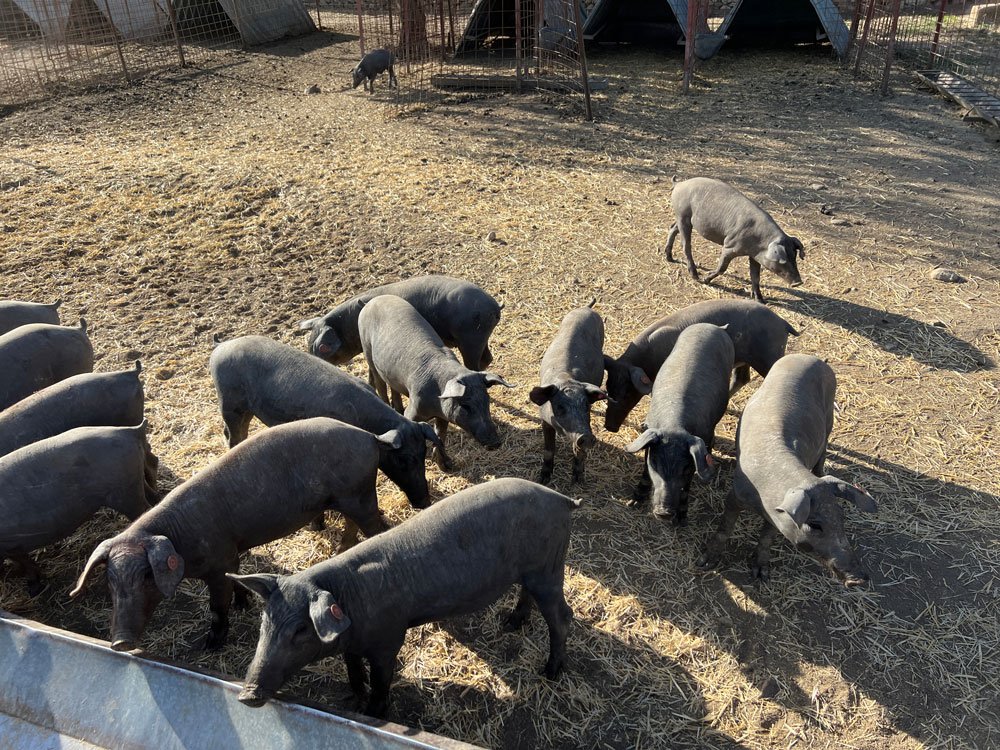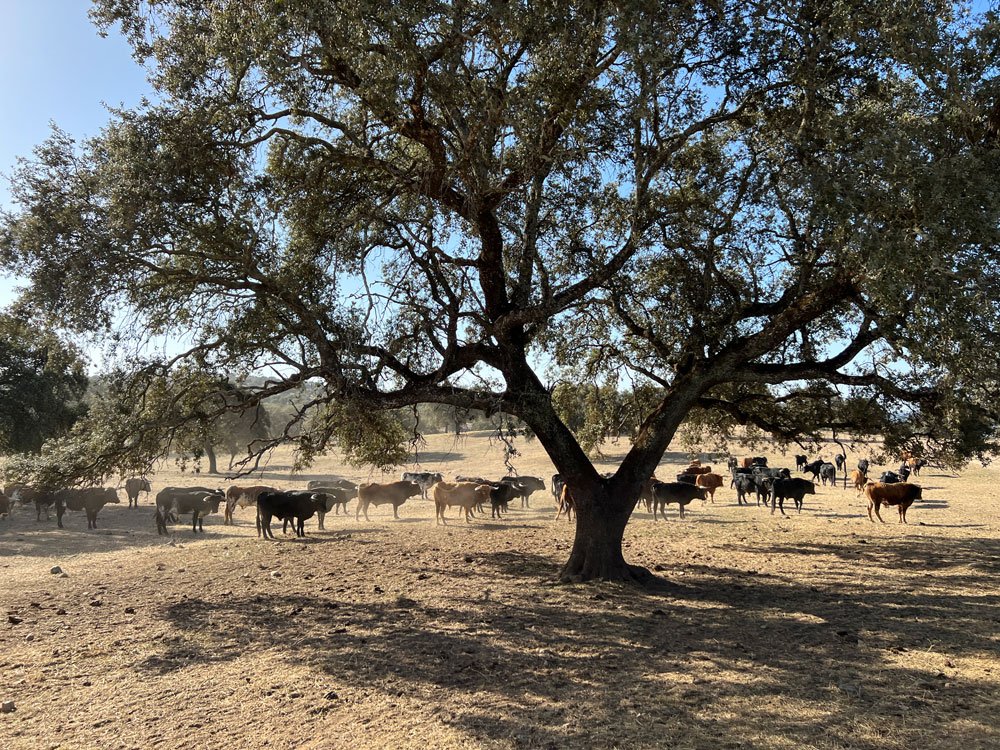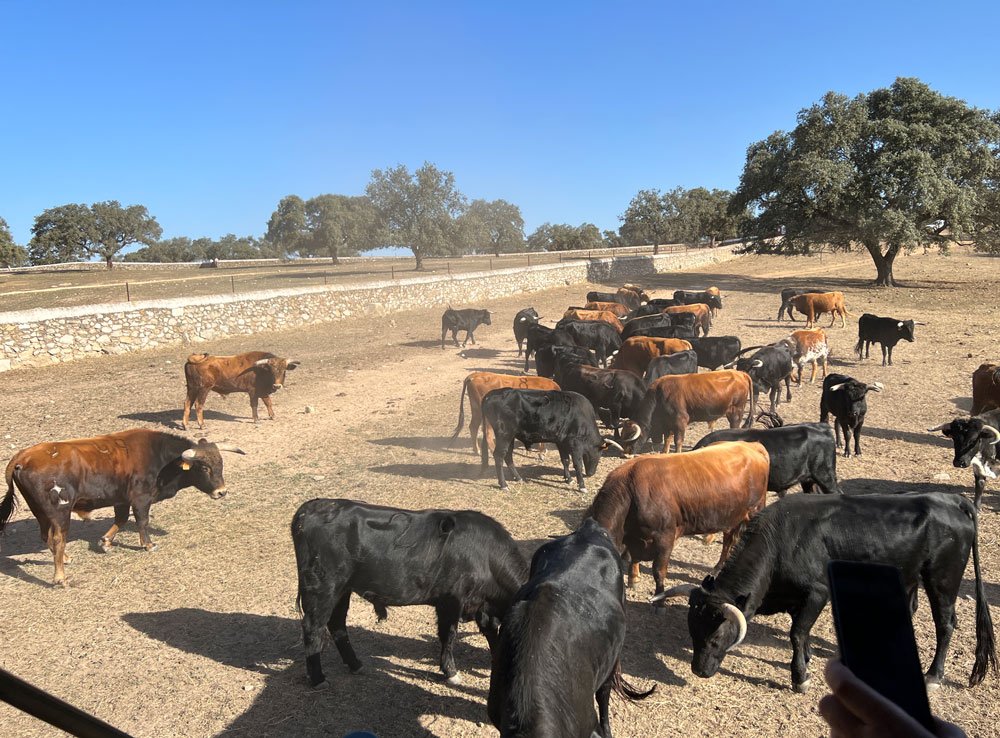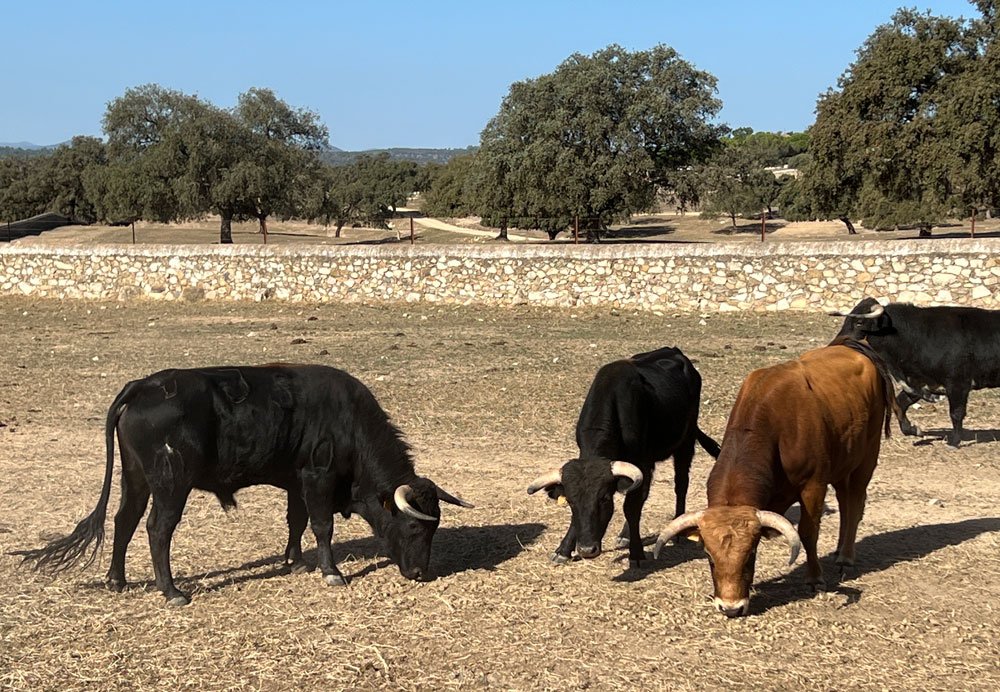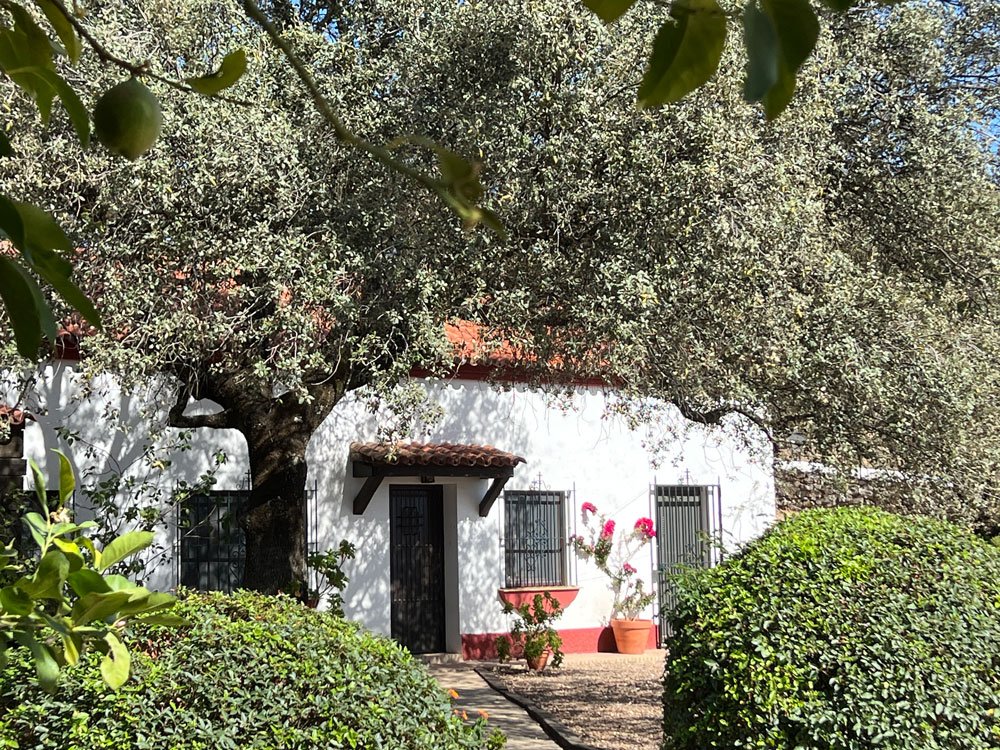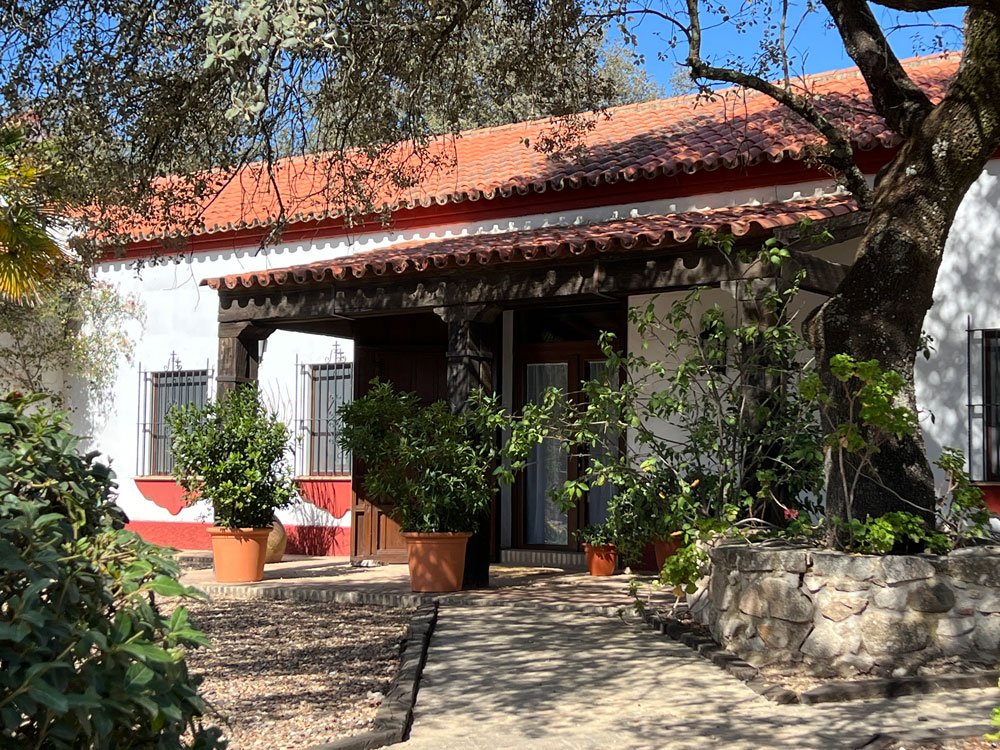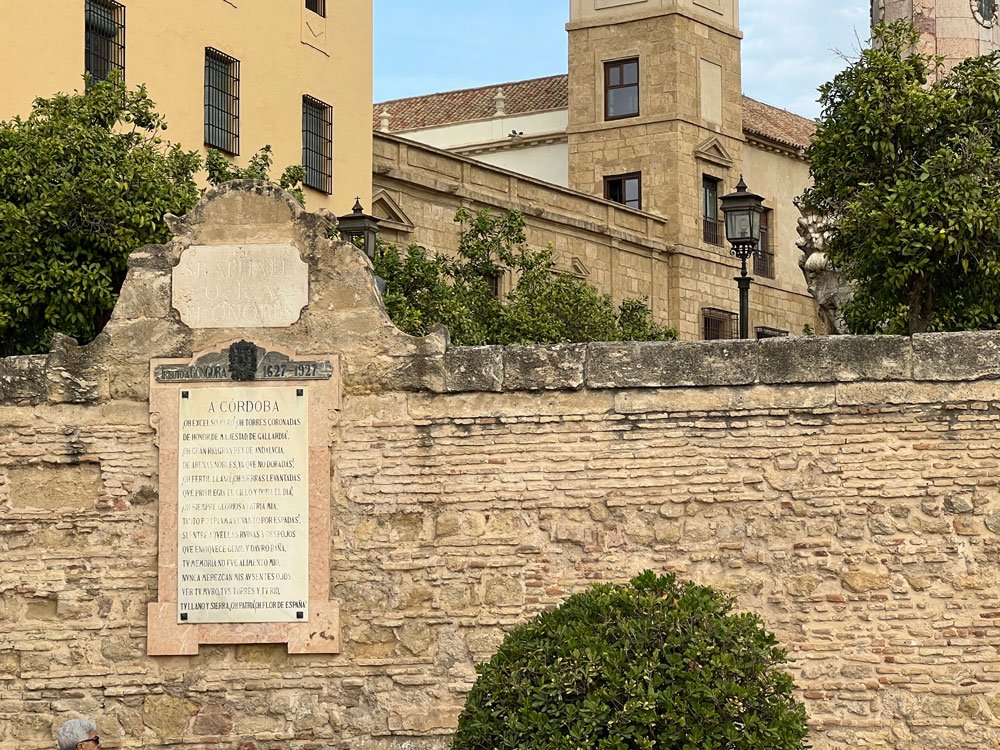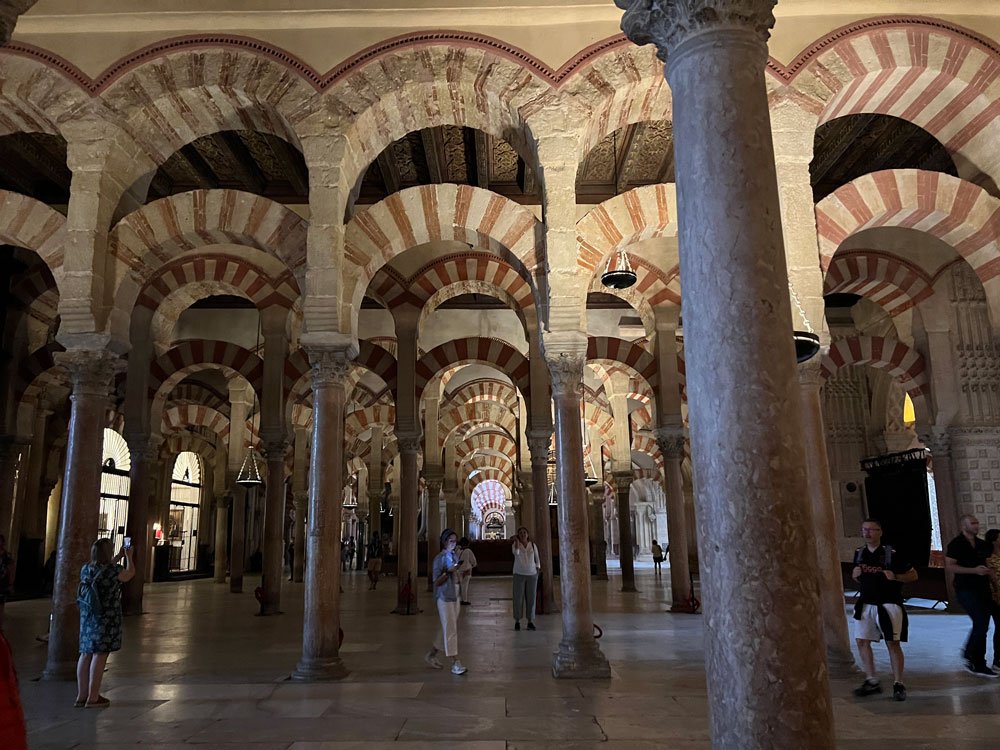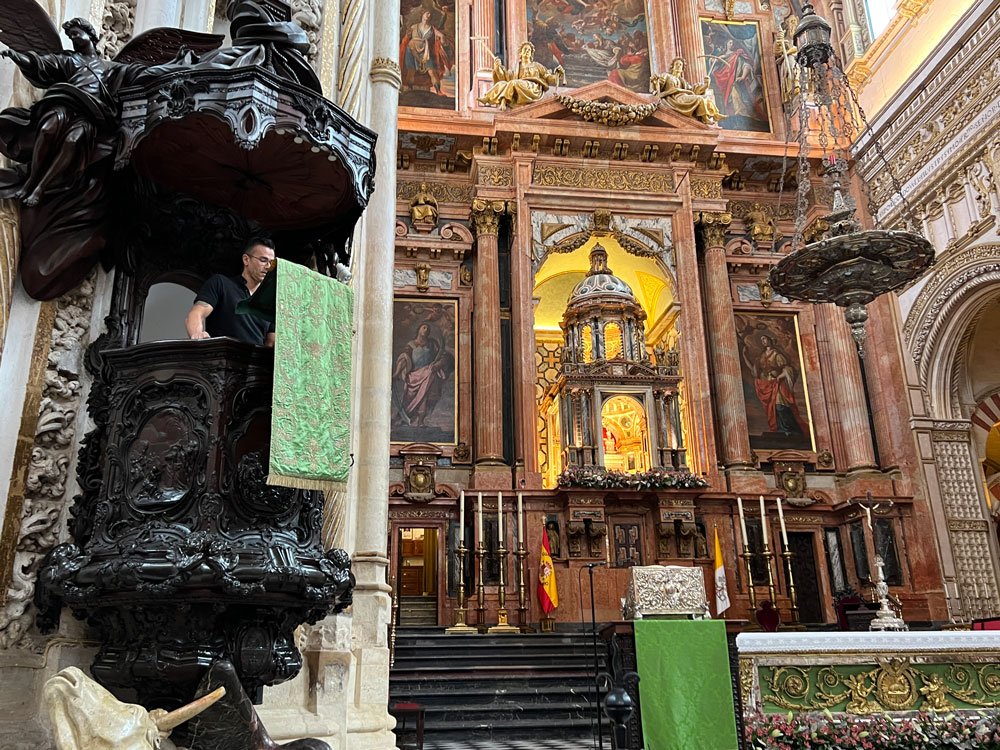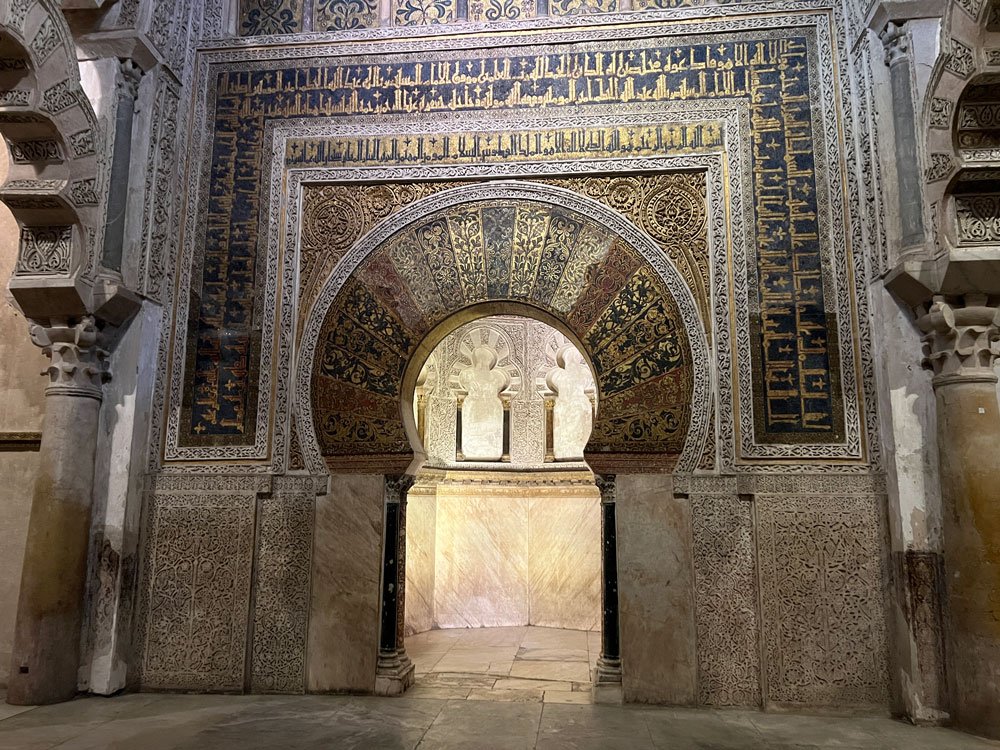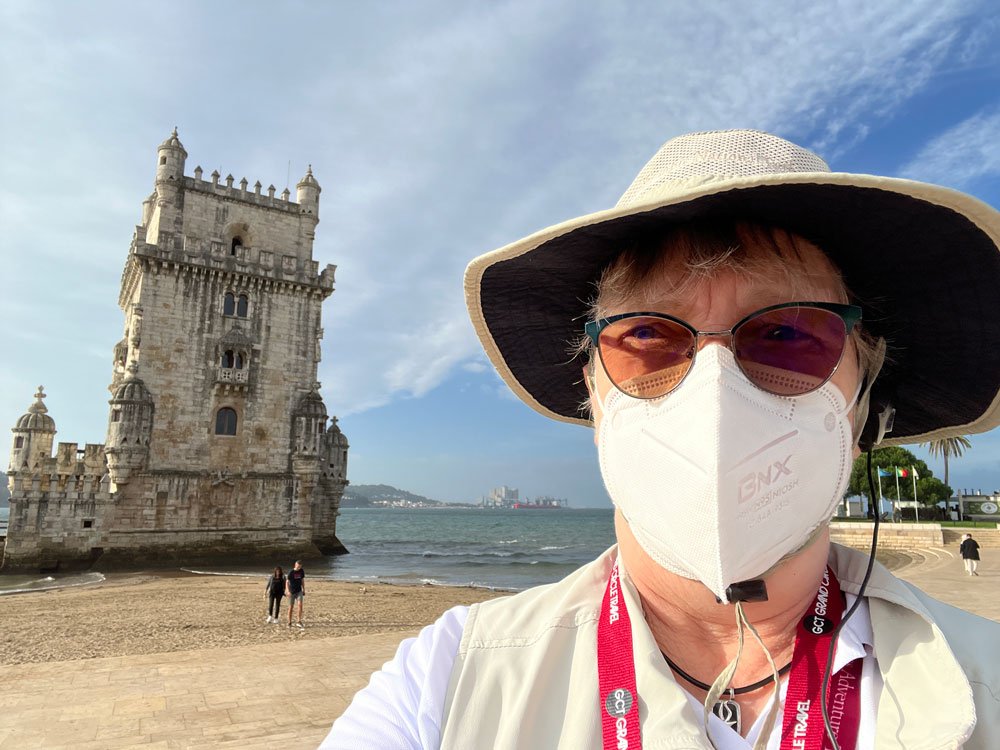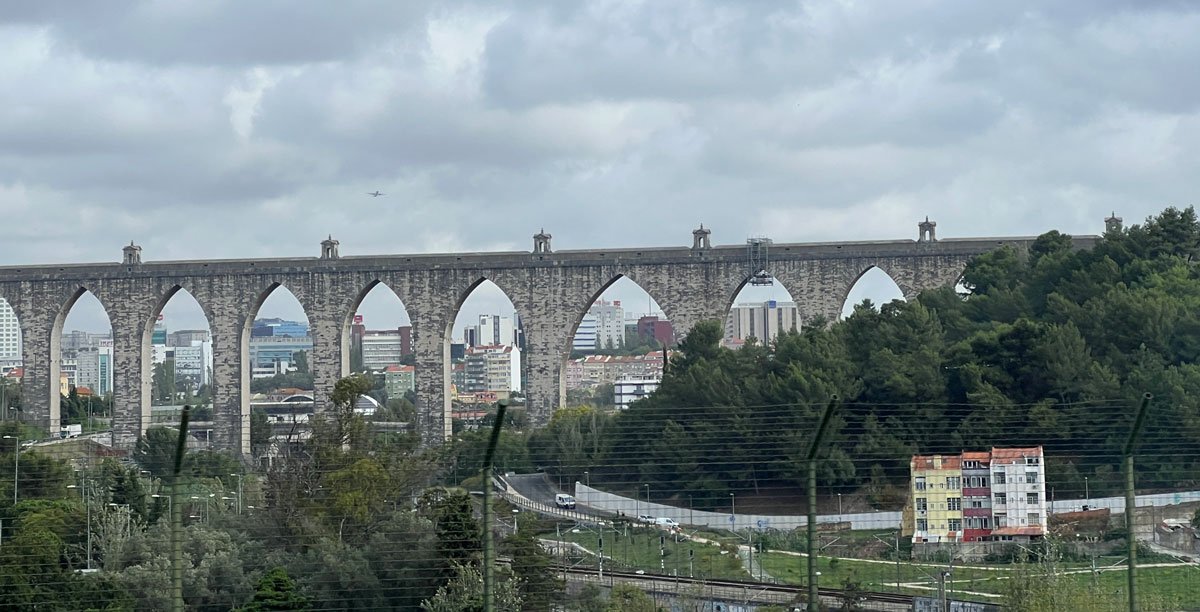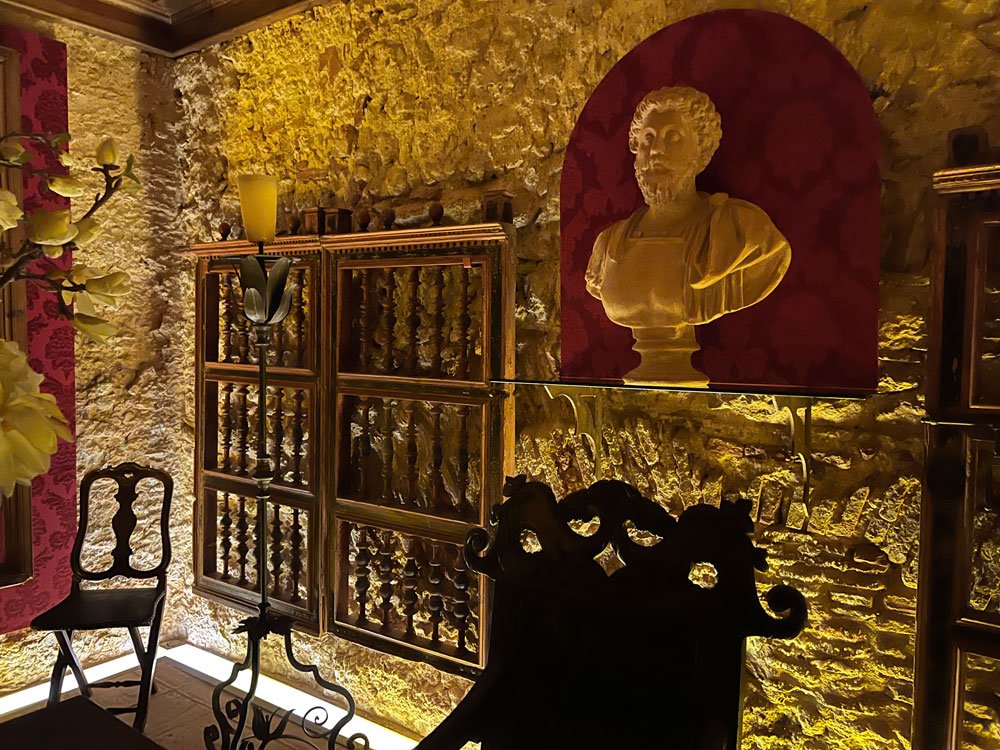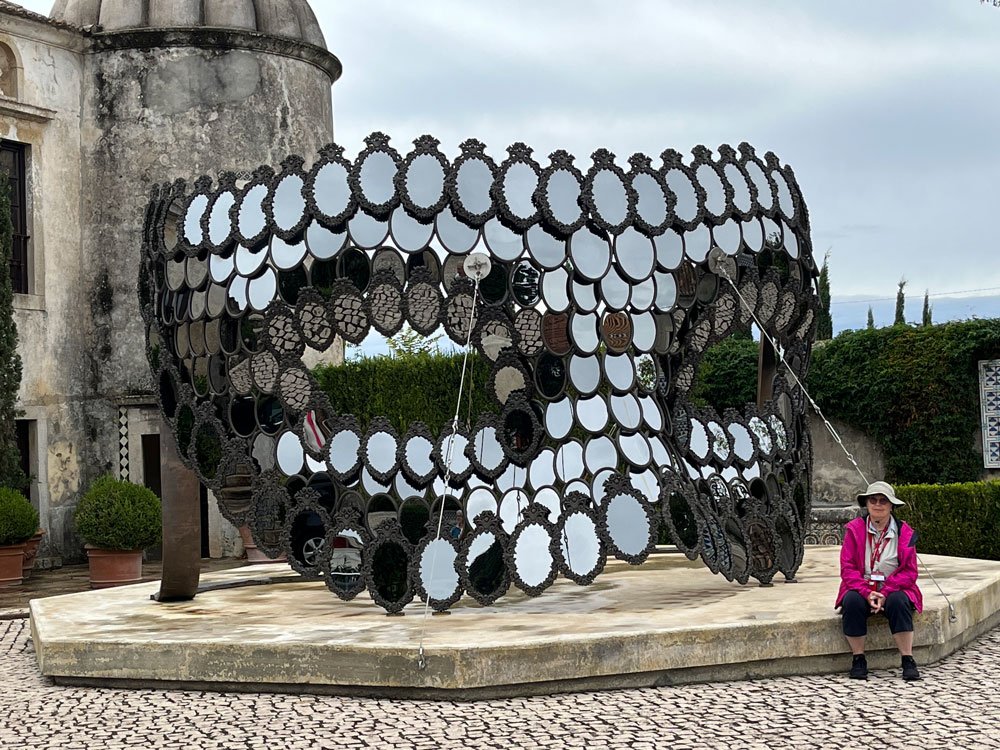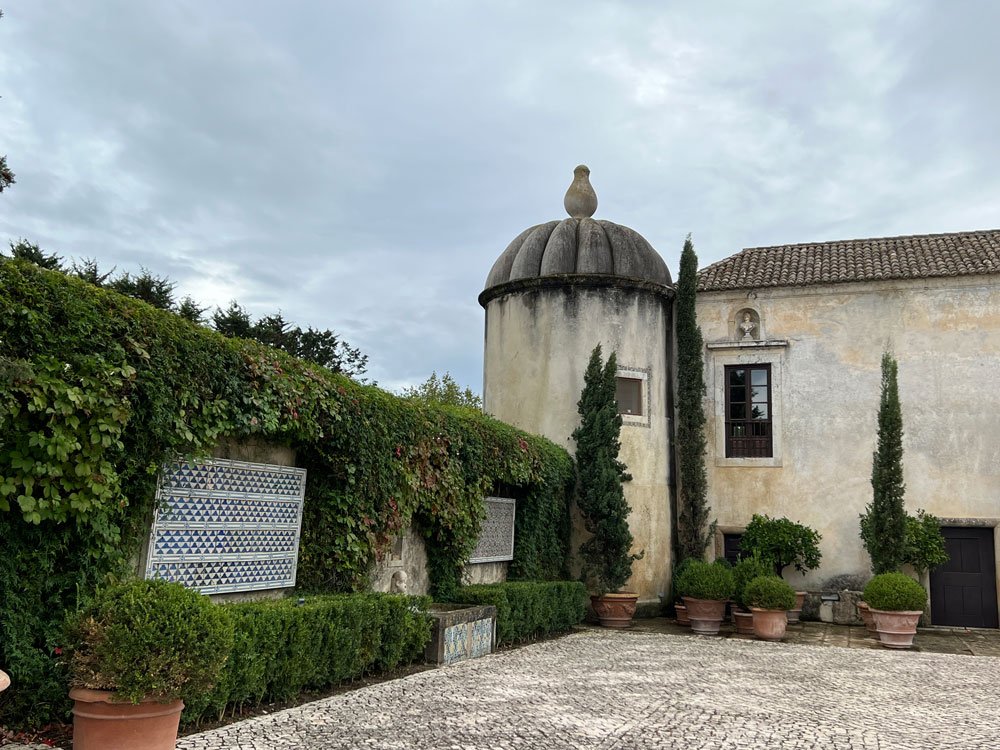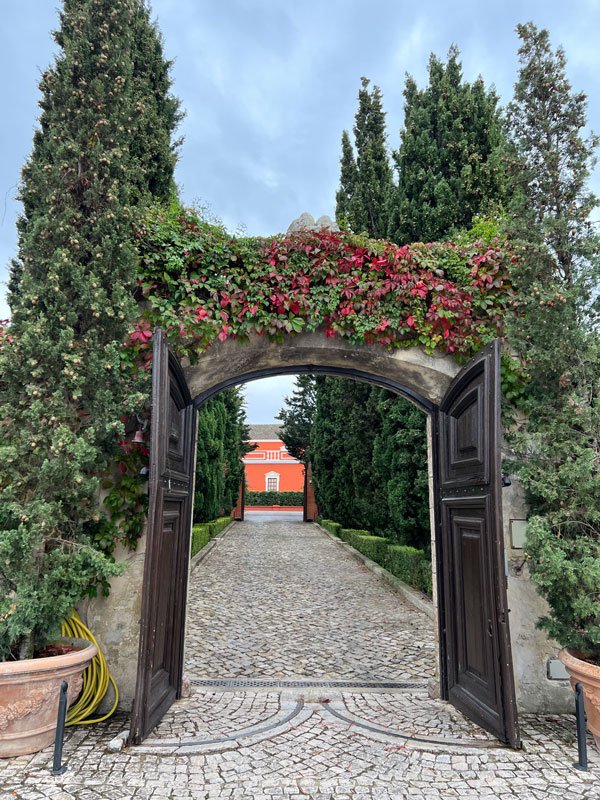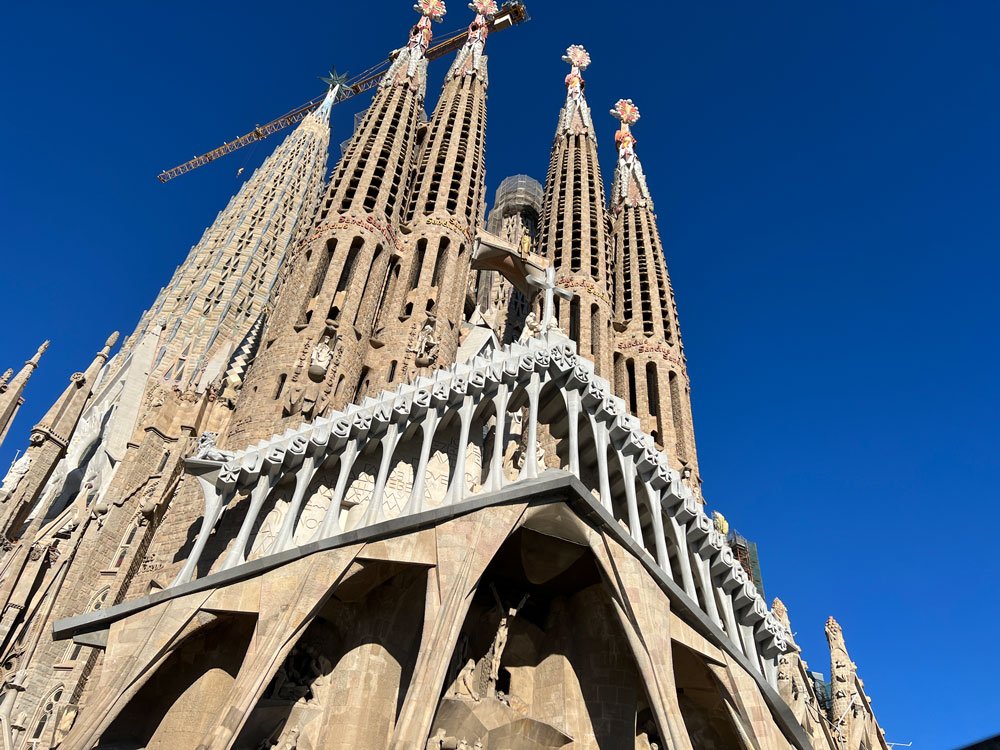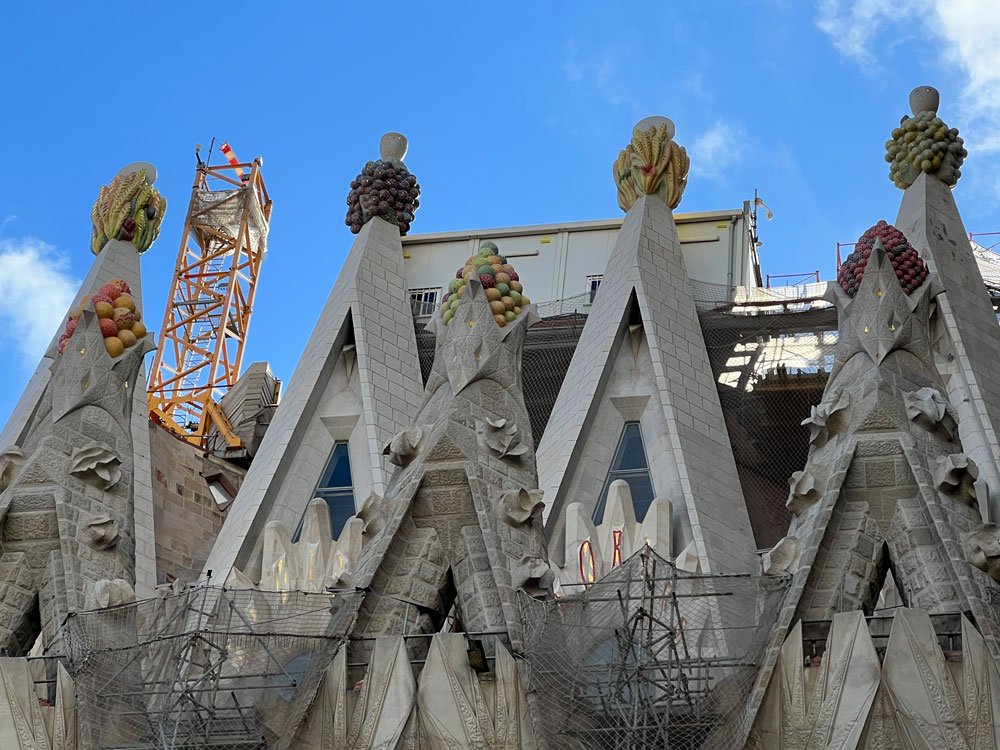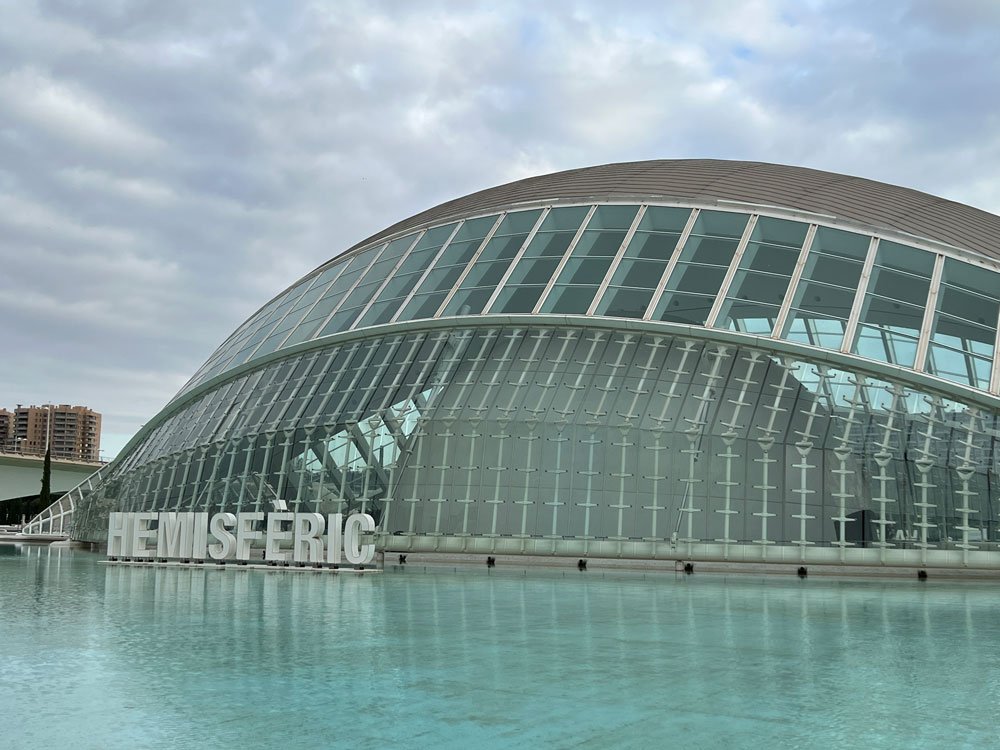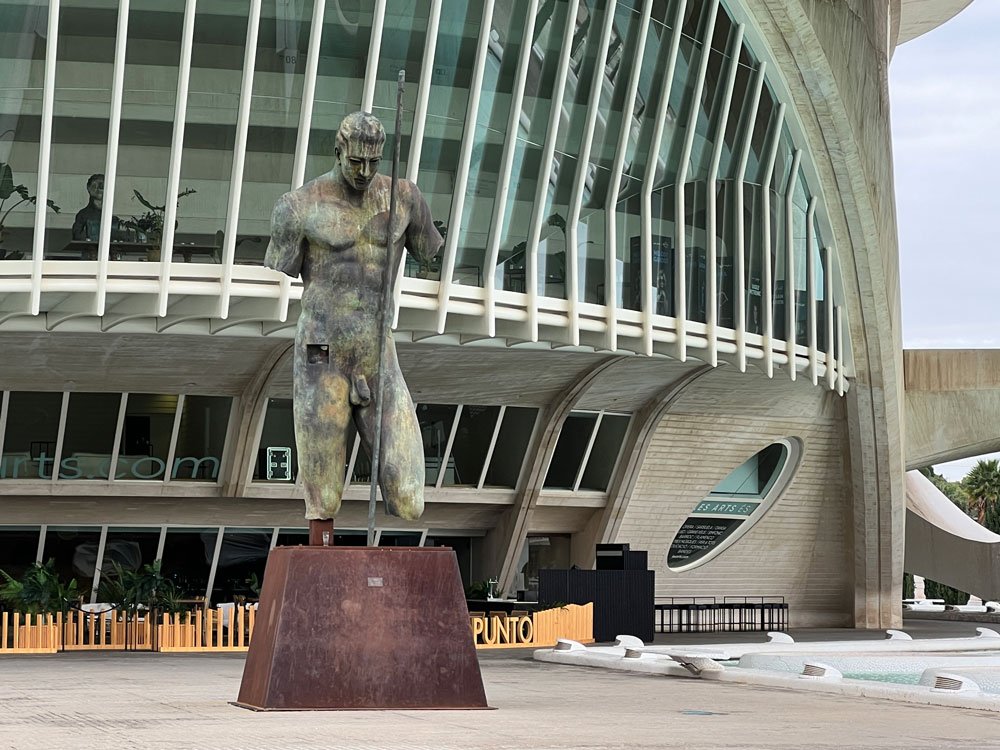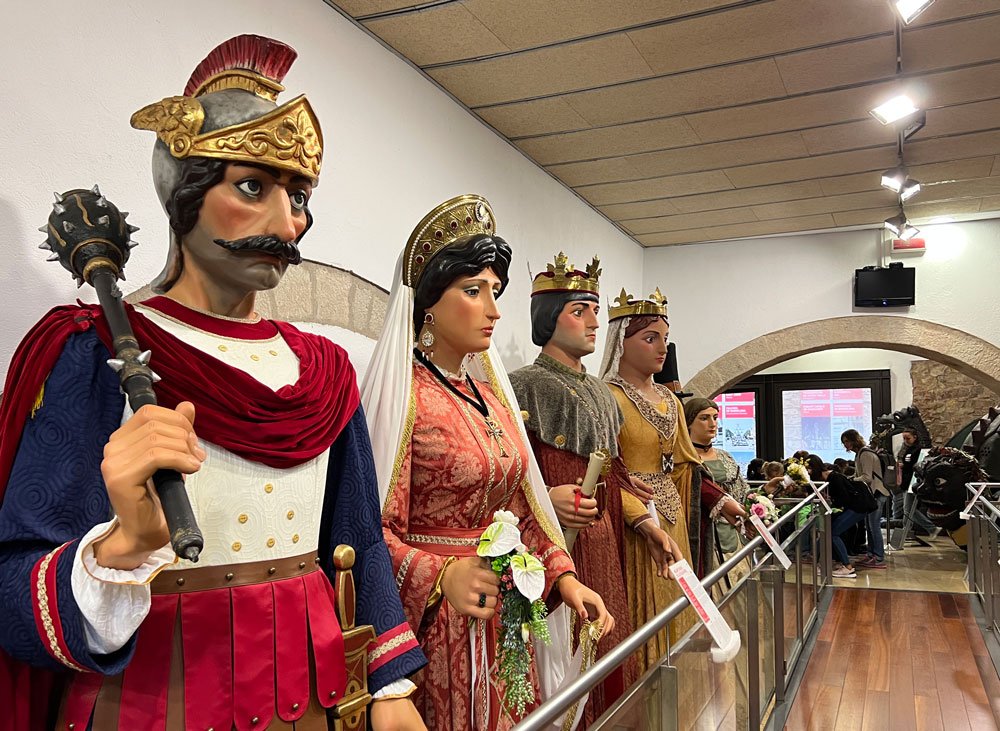Iberian Travel: Delight and Challenge
Map of Iberian Peninsula with route of our trip
Iberian Travel: Delight and Challenge
I’ve recently returned from three weeks of travel in Europe and North Africa – Spain, Morocco, Gibraltar, and Portugal. Several friends have asked me to identify the highlight of the experience. That request seems to imply that there will be a building, a city or an activity that made the whole trip worthwhile. While our tour with Overseas Adventure Travel was fantastic and I’m delighted to have done it, that question stumps me. It’s easier for me to make a list of things I especially appreciated or enjoyed rather than to identify a specific “highlight.”
Favorite things in no particular order of priority:
- The comradery of being one of 22 travelers affiliated with my Unitarian Universalist denomination.
- The pleasure of spending ten nights on a small (98 passenger) cruise ship with outstanding food, crew, and accommodations.
- The satisfaction of completing a voyage originally planned over seven years ago, despite the disruption and worries created by COVID and despite being seven years older with a little less physical agility than when these plans were first begun.
- The joy of interacting each day with one or more of our four outstanding program guides, each a native of an area we were visiting.
- The personal connections created by visits with local residents at home-hosted meals, and at a ranch and a school.
There were also challenges to deal with:
- Airports. Our SeaTac Airport is a pleasure to travel through compared to the crowds, confusing signage and lengthy corridors we experienced in Frankfurt, Barcelona, Lisbon and Toronto.
- Slavery and Colonization. Given the emphasis my church and volunteer organizations have placed on racial equity issues in recent years, I was hoping to learn more about the role of Portugal and Spain in the sale of enslaved people and what steps residents and the government have taken to reconcile their current lives with some of the shameful aspects of their history. Unfortunately, the kidnapping of African people and their transport around the world never became a topic of conversation. The “exclusion” of Jews and Moors was touched on with hardly any acknowledgement that it was not peacefully accomplished. Instead, we learned of the riches and glory that came to Spain and Portugal because of their skill as ocean navigators and traders. Some of my travel mates tried to correct our local guides when they referred to Columbus as the discoverer of America, but the guides had set speeches which didn’t seem to allow for recognition that the Americas were already occupied and that Columbus was not the first European visitor. Nor was there any recognition of the harm done to native populations by transmittal of diseases and the plunder of gold and other precious items from other lands.
- Climate Change. Environmental issues were also on my mind before and during our trip. Given the critical nature of climate change issues and the large amount of fossil fuels consumed by airplanes and ships, none of us should be traveling for pleasure. In fact, my husband and I had discussed cutting back on international trips a couple years ago. However, that consideration fell away with the opportunity to be part of this unusual tour.
- Crowds. Big crowds can be annoying under any circumstances, but since COVID is still with us, being in large groups is extra stressful. This proved to be a popular time to visit Spain and Portugal and we encountered crowds nearly everywhere we went – city sidewalks, museums, churches, architectural highlights, viewpoints, subways and restaurants. We visited three art museums, which normally would be a highlight for me, but the large number of people in small spaces made me feel claustrophobic and more interested in finding the exit than in examining the collection. Fortunately, I took some photos which allow me to belatedly enjoy some of the items I rushed past.
- Privilege. As someone who believes that income inequality is a big problem in the U.S. and around the world, it is easy to feel conflicted about participating in an expensive bus and ship tour most people could not afford, especially considering that many of the very attentive ship crew members were from what might be referred to as “third-world” countries. The crew were always pleasant and accommodating and assured us they loved their jobs, even though they were regularly away from their families for months at a time. The near total absence of crew members from wealthier countries made it obvious that the hardships experienced by the crew were worth it to them because of income and travel opportunities not otherwise available to them. They thanked us repeatedly for traveling with them, since our presence ensured their employment.
Orlena Scoville, Martha Sharp and Waitstill Sharp
Letter requesting use of palace to shelter children during the war
Telegram accepting the children
Letter from Unitarian Service Committee to Orlena Scoville
So what was the highlight of the trip? It might have occurred on our last day in Portugal when we visited a palace which had artifacts and historical documents on display. To our surprise and delight, this particular building had served as a holding area for young children being escorted to safety during World War II. Well-known members of the Unitarian Church, Martha and Waitstill Sharp, facilitated the transfer of the children to safety. Documents and pictures were on display confirming these arrangements. Most of our tour group members were affiliated with the Unitarian Universalist Church and most of us knew of the work of the Sharps during the war years. Their service led to the creation of the Unitarian Universalist Service Committee which I and many others of our group actively support today. It was a delight to discover a bit of our own church history on display.
This trip offered the opportunity to interact with a wide variety of interesting people. It provided a break from the sense of isolation so many of us experienced during the pandemic. We learned about the history of the areas we visited and were able to bring some critical listening skills to the stories told. I got the satisfaction of knowing I could face the challenges of international travel and enjoy myself despite occasional problems. Finally, I was able to utilize technology to share pictures online nearly every day, with positive feedback from friends at home as well as fellow travelers.
I have two more big trips coming up in the next few months, both postponed from earlier dates due to COVID. I hope they will be as successful as the trip I just completed.
Carolyn Hayek



